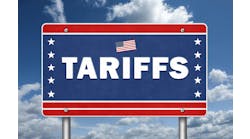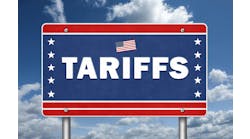During the pandemic, the strength of the U.S supply chain was tested and often came up short.
That’s why Mike Crum, a professor and Ruan Chair of Supply Chain Management in Iowa State University’s Ivy College of Business, is calling for a federal office of supply chain.
In his new report, “U.S. Supply Chain Policy Priorities”, he said research showed that there were several federal departments and agencies that are establishing policies and passing regulations or initiatives that impact the private sector supply chains. “The impact of individual policies and regulations and the interactions among them on total supply chain performance was usually not considered since no one government entity was accountable for overall supply chain performance,” he said in a statement.
This has led to the creation of many silos within the government. However, “given how important the supply chain is to national defense, the economy and quality of life in our country, we thought there needed to be one focal point within the federal government to coordinate policies, identify best practices, share information, and communicate across all agencies to have a positive impact on supply chains,” Crum points out. And this focal point should be an Office of Supply Chain, he says. He cites the example of the Office of Management and Budget which was created to coordinate efforts and identify best practices.
One of the reasons for the creation of this structure now is that since we have learned of the vulnerabilities and weaknesses of supply chains during the pandemic, we need to create new processes. “One thing that was noted in the report is our dependence on different parts of the world for critical materials and finished products, such as pharmaceuticals and medical devices. The pandemic really revealed a lot of areas where we have vulnerabilities and our ability to respond.” Crum said in a statement.
The report includes several recommendations. One is as follows:
I think the recommendations in the area of transportation are also extremely important because transportation accounts for a very large percentage of total supply chain costs. It also accounts for a high percentage of variability in supply chain performance. Companies have done a really good job improving and controlling manufacturing and operations within their organizations. However, once you add transportation to the equation, now you have time and distance, freight mingling with passenger vehicles, weather, all these different factors that are not as easy to control as your own manufacturing systems.
Our transportation infrastructure is in very bad shape, particularly bridges and highways. Most of our ocean ports are operating near capacity and now there are huge congestion problems because of pent-up demand.
There are several innovations coming in the transportation space, such as autonomous vehicles, drones and the internet of things being applied so that vehicles can communicate with one another and vehicles can communicate with the infrastructure. All this technology is percolating, and we’re seeing a lot of startup activity focused on supply chain – increased automation, artificial intelligence and machine learning – to do a better job of moving products throughout the supply chain.



